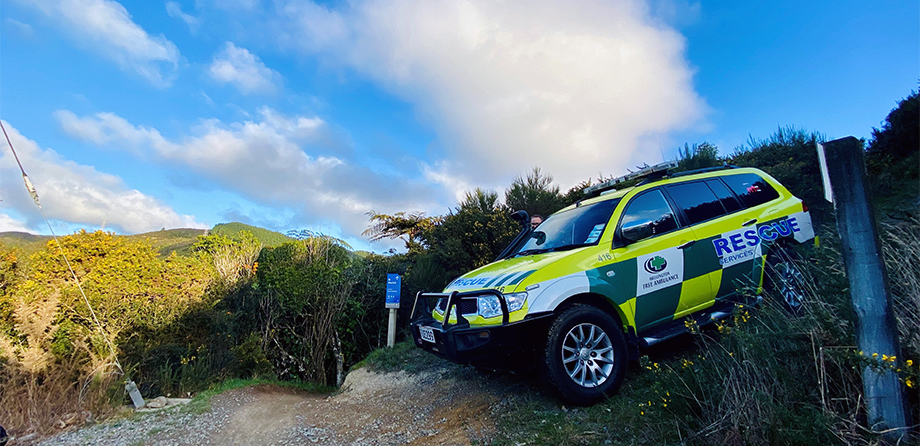About us
Our news
Our specialised rescue response
Our specialised rescue response
 10 May 2021
10 May 2021
Vehicles and training may have changed since our early rescue operations, but Wellington Free Ambulance’s dedication to respond to complex circumstances, with specialist care remains the same

In 1986 a 4WD Land Rover sporting a capstan winch was the go to vehicle for rescue operations, and available to all staff. Those who took a particular interest in rescue operations at the time formed a rescue team.
Nowadays staff respond to rescues in one of three vehicles, which can be either a Mitsubishi Challenger or Mitsubishi Triton 4WD.
Through training and induction we now have specialist Rescue Paramedics who are primed to respond to complex rescue emergencies.
The last intake of Rescue Paramedics saw potential members complete a 2.5km hike to respond to a patient; their condition unknown in a simulated scenario.
Before they head off they must decide what they may need and load 20kgs of medical supplies in their bag for their walk ahead. This might include taking specialised rescue equipment such as ‘the wheel’, an extrication aid.
Once located, their first priority is to assess the patient before preparing a helicopter landing site. This means ensuring there is a 20 x 20 metre clearing for a helicopter to land, removing debris and understanding wind directions.
The rescue team complete a variety of training during their induction and ongoing skills development, such as rope access with Fire Emergency New Zealand or 4WD training in areas such as Orongorongo Station.
Some rescue situations can be particularly challenging, says Clinical Educator and Rescue Paramedic Brendan. He recalls one where a patient needed treatment on a steep slope and needed to be winched through a small gap in a canopy of trees by the rescue helicopter. Others have involved navigating the off-road terrain of reserves and park ranges in specialist 4WD vehicles, to reach patients.
“Rescue jobs start with your own self-protection, this means being prepared for hostile environments, for example the terrain in the Wellington region is often cold, wet and windy, with poor lighting and communication capabilities.”
Rescue Paramedics need to know how to assess and manage shock without the normal assessment tools that they would otherwise have available.
“Our training often involves understanding alternative methods of hemorrhage control too and of course environmental emergencies,” says Brendan.
“Rescue paramedics need to demonstrate a high standard of fitness and they need to be able to think outside the box. You need to consider how a patient is going to be extricated. This could mean staying overnight with a patient in difficult terrain while waiting for a helicopter when it is unable to fly in low cloud or high winds. It could be, you need to carry a patient out with the assistance of other agencies such as Fire and Emergency New Zealand (FENZ) or Police Search and Rescue (SAR).”
The greater Wellington and Wairarapa region has many great outdoor activities and the terrain attracts people who like the great outdoors.
“Staff who have an interest in the outdoors often have an interest in rescue, this involves caring for and extricating patients that have become ill or injured within this environment.” says Brendan.
Currently there are 37 rescue paramedics, with varying levels of experience, working at Wellington Free.